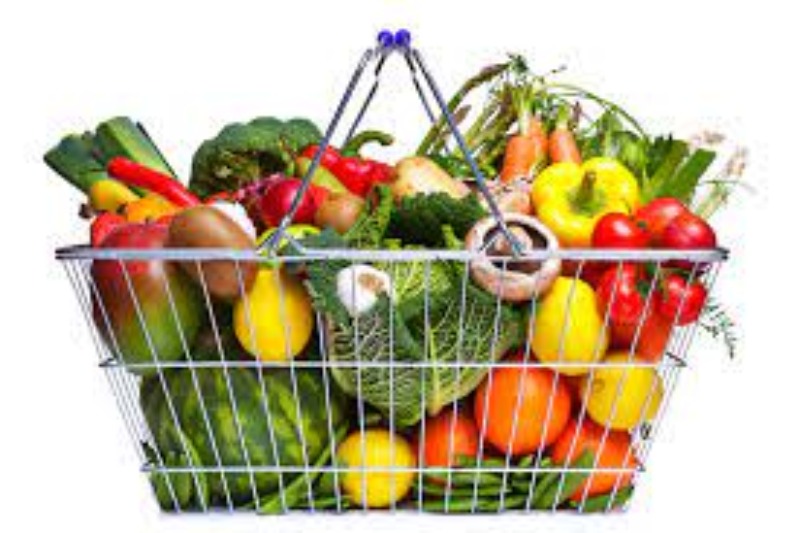One of the largest obstacles to eating a healthy diet is the abundance of false information.
It can be challenging to distinguish between what is genuinely healthy and what is dangerous due to conflicting headlines, fad diets, and false information. Manufacturers that mislabeled their food goods and social media influencers who don’t know much about nutrition but promote particular diets or eating patterns are contributing to the confusion.
The truths behind ten of the most widespread myths about nutrition are provided here.
Myth 1: All fat is unhealthy
In the 1990s, when low-fat diets were popular, fat received a bad rap. Many Americans are still unsure of the place of fat in a healthy diet.
Teresa Fung, a nutritional epidemiologist and professor of nutrition at Simmons University in Boston, claims that people are aware that not all fats are created equal.
The higher saturated fats found in animals are associated with heart disease. However, you can reduce your risk of cardiovascular disease and death by consuming the healthy monounsaturated and polyunsaturated fats found in fish, avocados, olives and olive oil, eggs, nuts, and seeds.
2.Myth: Setting aside the salt shaker is the greatest method to reduce sodium intake
Reducing your sodium intake could literally mean the difference between life and death if you have high blood pressure, as the majority of Americans use excessive amounts of salt.
However, simply skipping the salt shaker at dinner won’t have a significant impact because prepared foods account for the majority of sodium intake in the United States.
According to her, a lot of processed meals, packaged snacks, canned beans, cheese, salad dressings, pasta sauces, and breads are high in sodium. It is possible to inject boneless, skinless chicken breasts with a brine that elevates their sodium content. Restaurant cuisine is likewise laden with salt; in fact, some dishes contain as much sodium as you should take in a day in one sitting, per a Canadian Journal of Public Health study.
Fung advises comparing labels, selecting low-sodium versions of packaged and prepared foods, and cooking as much as feasible at home.
3.Myth: Whole grain and multigrain foods are inherently healthier
Although labels can be deceiving, you already know that whole grain-based goods are healthier than those manufactured with refined flour.
According to Fung, the terms “made with whole grains” and “multigrain” may sound healthful, but they typically indicate that a product has mostly refined ingredients with a little quantity of whole grains.
In order to ensure that a product is prepared with at least 51% whole-grain ingredients, Fung advises searching for labels that say “whole grain” or “whole wheat.” Selecting one that states “100% whole grain” is even better. To confirm that a whole grain is listed first, you can also check the ingredient list.
4.Myth: Even in fruit, sugar and carbohydrates are unhealthy for you
Popular low-carb and sugar-free diets like paleo and keto may have given you the impression that anything containing sugar or carbohydrates is unhealthy. However, Dariush Mozaffarian, M.D., a cardiologist, public health expert, and head of Tufts University’s Food is Medicine Institute, argues that there is a significant difference between the natural sugars found in fruits and vegetables and the added sugars and refined carbohydrates found in processed foods.
According to Mozaffarian, eliminating refined carbohydrates and added sugars is likely the best thing you can do to regulate your weight.
However, keep eating fruits and veggies. In addition to being rich in vitamins, minerals, fiber, and other beneficial micronutrients, research indicates that eating a higher quantity of them can extend one’s life expectancy and lower the risk of dying from any cause.
5.Myth: Frozen vegetables is less nutritious than fresh
Purchasing fresh raspberries or peas from the farmers market is the best. However, if it’s the dead of winter and there’s no local produce to be found, you can browse the frozen foods aisle knowing that you won’t be depriving yourself of any nutrients, according to V. Longo, the head of the University of Southern California’s Longevity Institute and a gerontologist and cell biologist.
Studies reveal that frozen foods contain as many vitamins and antioxidants as fresh meals, and in some cases even more. Frozen produce is typically harvested at its ripest. Furthermore, studies indicate that fresh produce loses more of its nutritious value the longer it is stored.
“Food can oxidize and get contaminated over time,” Longo says. “If you pick berries and freeze some and leave some out, the ones that were frozen might be fresher than the ones that sat around on a bench or in a crate.”
6.Untruth: Canola oil is harmful
According to Mozaffarian, despite what you may have seen on social media, there is no scientific evidence to support the claims made about the toxicity of canola, sunflower, and other seed oils. There is ample proof that they are advantageous.
Canola oil has a very low saturated fat content and a high content of beneficial monounsaturated fats, omega-3 fatty acids, and phytosterols, which are known to slow down the body’s absorption of cholesterol. Canola oil reduced cholesterol and enhanced cardiovascular risk factors, according to a 2020 review that was published in the journal Nutrition, Metabolism, and Cardiovascular Diseases.
According to Mozaffarian, other seed oils such as sunflower and soybean oil are also healthy choices. It goes without saying that olive oil is good for the heart and may even reduce the chance of dying young.
7.Myth: Foods without gluten are healthier
A protein called gluten can be found in cereals like rye, barley, and wheat. To avoid harm to their digestive systems and other body components, people with celiac disease need to cut gluten out of their diets. Furthermore, according to Harvard Medical School, people with gluten sensitivity may experience relief from symptoms like bloating, diarrhea, or abdominal pain by cutting off gluten.
But according to Mozaffarian, being gluten-free does not always equate to being healthy for the rest.
He wants to dispel the notion that healthy food—whether it be organic, regional, natural, vegetarian, or gluten-free—can be characterized by a single term or feature.
“All of those are terms that have some relevance, but you can’t really define a healthy diet by a lack of something,” he says. “You can have natural, gluten-free, organic food that is still terrible for you.”
8.Myth: Have six little meals a day as opposed to three substantial ones
This misconception suggests that eating small, frequent meals will increase your metabolism and increase the amount of calories you burn.
But according to research, dividing the same caloric intake into six meals as opposed to three does not improve daily energy expenditure, weight reduction, or fat loss, according to Longo. Furthermore, researchers from the University of Colorado discovered that people who ate smaller, more frequent meals experienced greater levels of hunger than people who ate fewer meals.
A third issue is that, in the real world, people will simply consume more—or more of the incorrect kinds of food—if they are instructed to have five or six little meals.
Longo suggests having breakfast, followed by another large meal, a third smaller meal, or a snack, every day.
9.Myth: Performing a detox or cleanse is a good thing
On social media, several detox diets and juice fasts are well-liked, but research indicates that there may be risks as well as minimal advantages.
For instance, a review study conducted in 2014 discovered no proof that detox diets help people lose weight over the long run or remove toxins from their bodies. According to a 2017 study published in the journal Nutrition and Obesity, most people actually gain weight when they resume their regular eating habits, even if they lose weight during a cleanse.
More worrisomely, the National Center for Complementary and Integrative Health states that cleanses can have major adverse effects such as electrolyte imbalances, dehydration, protein and vitamin shortages, and gastrointestinal issues.
10.Myth: It only counts how many calories you consume
It is true that you will most likely lose weight, at least initially, if your energy expenditure exceeds your energy intake. However, “calories in, calories out” is an oversimplified concept that ignores the impact that various food kinds have on your general health, according to Mozaffarian.
According to him, two meals that are equal in calories might affect your gut microbiota, metabolism, and hormones in different ways. For example, digesting a handful of almonds will take longer than digesting a bag of Cheetos. Furthermore, more recent studies have shown that fatty foods tend to contribute to subcutaneous fat, which is less dangerous, whereas starchy and sugary foods tend to contribute to visceral fat, which has been connected to heart disease and other disorders.
Mozaffarian suggests consuming nutrient-dense whole foods instead of processed foods with added sugar and refined carbohydrates for weight loss and general wellness.
Topics #nutrition #Ten Defuted Myths









